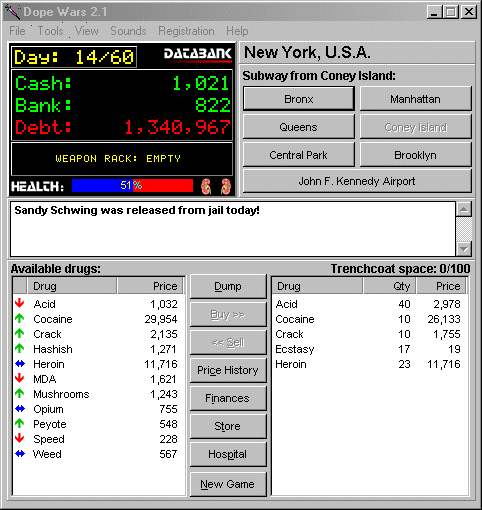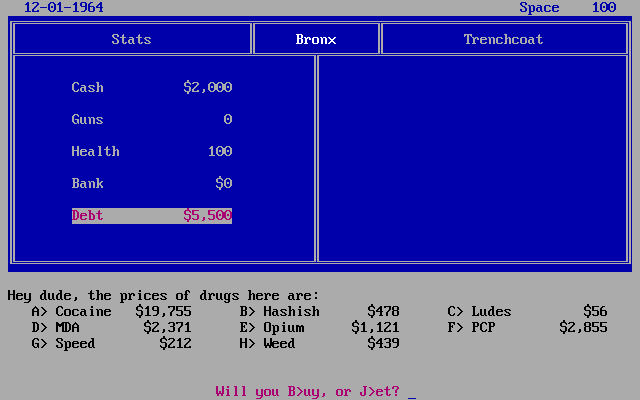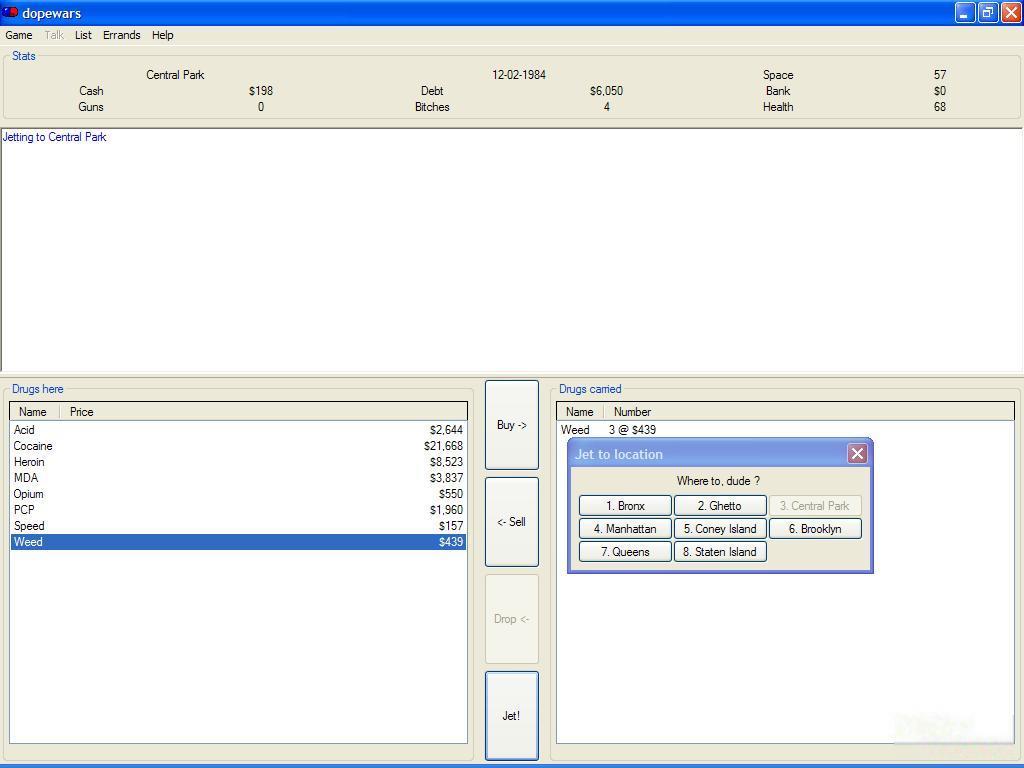

But Drug Wars added that spice of depravity to the proceedings that gave it a sordid appeal to middle schoolers straining against the limits of childhood. That game kicked off an entire genre of space trading games in which players travel from one planet or star system to another in order to buy and sell goods, including titles like Eve Online and Privateer. At a glance, any teacher peering over to see what their students were doing on the computer would just see a lot of words, which wouldn’t trigger the same immediate alarms as the graphical tank battles of Scorched Earth, for instance.ĭrug Wars was actually based on an earlier game, a BASIC title called Star Trader, released in 1974. This was a game about selling drugs and shooting cops that was getting passed around during the peak period of furor over video games eroding the morality of children.

I don’t think any parents or teachers realized we were ever playing Drug Wars, or I imagine they would have been pretty unhappy about it. With a loan shark and the cops breathing down your neck, your goal is to make as much cash as you can in a calendar month by traveling around the boroughs and unloading your illicit substances for more than you paid for them.

You play as a dealer in New York City, trading in everything from cocaine to acid to quaaludes. Dell in 1984, Drug Wars is a pretty straightforward simulation game based around the economic concept of arbitrage. Maybe that’s why games like Drug Wars on DOS, furtively played on classroom computers throughout the 90s, held a special kind of allure to me.ĭeveloped by John E. I didn’t drink until I was in my senior year of high school, and I didn’t touch drugs - even weed - until I was in college. And, through the book’s use of extended case studies, this text offers students an inside look at a complex and fascinating policy area, from Sweden’s attempts to enforce drug-war style policies, to the UK’s movement towards decriminalization, to the responses of such international organizations as the United Nations and the European Union.Ī comprehensive bibliography of websites, articles, and book length studies point to further research on the topic, while class-tested research and study questions for each chapter will jumpstart class discussions and projects.Confession time: I was a classic “good kid” for most of my early life. As he discusses drug production, consumption, distribution, and money laundering, Mares carefully shows what insights micro political economic, realist, constructivist, and social deviant perspectives each bring to bear on the problem. This variation creates a host of global cooperation and policy coordination problems, making Drug Wars and Coffee Houses an ideal supplement for giving students an opportunity to apply the larger themes of any political economy course to a substantive policy area.Ī compelling framework-focusing on political economic ideas and analysis-shows students how leaders and policymakers need to understand the drug trade as a full-blown commodity system if they are to impact its different segments. From the more tolerant “coffee house” style policies of the Netherlands which focus on public health concerns, to the United States’ just-say-no “drug war” approach, nations frame and seek to resolve these issues in very different ways and with different levels of success. With his brief and engaging new book, David Mares explores the reasons why there is so much disagreement among nations about which policies are most appropriate to address drug production, distribution, and trade. An international policy issue awash in myths, moral inconsistencies, social prejudices, and political rhetoric, it’s no wonder students find the international drug trade an alluring topic to study and discuss.


 0 kommentar(er)
0 kommentar(er)
